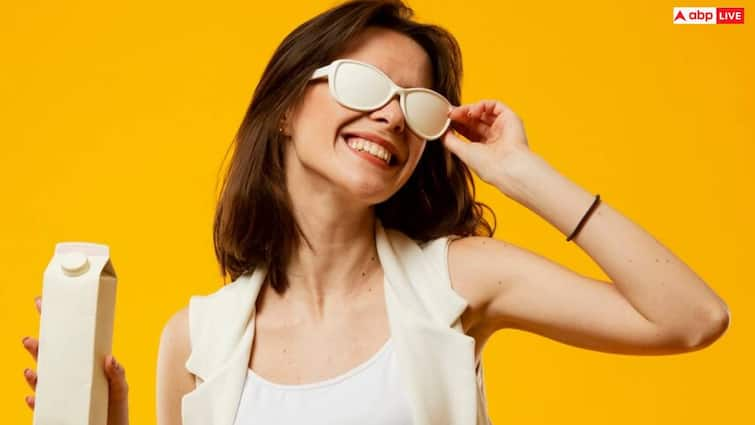Sunscreen during monsoon: It is very important to apply sunscreen whether the weather is nice or not because sunscreen is necessary even in the rainy season. According to skin care experts, we need sunscreen no matter what the season is. Even though monsoon is nice, it brings many problems and diseases. It has cough, fever, dengue, chikungunya and all kinds of fevers.
Many serious skin problems increase during the rainy season. To protect yourself from the scorching sun in summer, you must apply sunscreen. If you have stopped applying sunscreen during the rainy season, do not do it at all as it may damage your skin.
UV rays are harmful to the skin
Want to protect your skin from harmful UV rays? Because UV rays increase the risk of skin cancer, premature aging, hyperpigmentation, and many serious diseases. Don’t forget to include sunscreen in your skincare routine. When it comes to protecting your skin from the sun’s harmful UV rays. SPF 50 promises to provide broad-spectrum protection against both UVA and UVB rays. Its lightweight, non-greasy formulation gives a matte finish to your skin. So, you can use sunscreen to protect your skin from long-term sun damage.
What is SPF and what does it mean? SPF stands for Sun Protection Factor, this means how long the sunscreen will protect your skin from UV rays. The higher the SPF, the longer the protection will last. Learn everything you need to know about SPF, including how long does factor 50 last, how it works, and which number is best for your skin.
Which number is the most advantageous?
The SPF number tells you how long it will take you to get a sunburn after applying it. Even if you don’t apply it at all. For example, if you can spend 10 minutes in the sun without getting burned. So, a lotion with SPF10 will multiply that “self-protection time” by 10, or 100 minutes. But keep in mind that this is just an estimate, as it may not take that long for you to burn out depending on the weather, the season, or even your geographic location.
SPF15 blocks 93% of UVB rays
SPF30 blocks 96.7% of UVB rays
SPF50 blocks 98% of UVB rays
SPF100 blocks 99% of UVB rays
Disclaimer: Some information given in the news is based on media reports. Before implementing any suggestion, you must consult the concerned expert.
Also read: Avoid These Mistakes When You Get Food Poisoning in the Rain, or Your Health Could Deteriorate
Discover the health tools below-
Calculate your body mass index (BMI)
